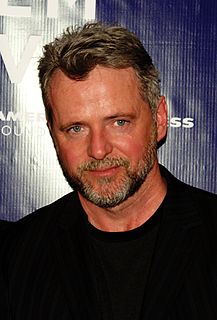A Quote by Dan Chaon
Identity issues are hardwired into the way I think about character - it's almost as if I can't get away from them even if I want to.
Related Quotes
My thing about looking good is that it should be the character. If I'm playing a character who's concerned about his body - an athlete, say - I'll get in shape. If I'm playing a character who doesn't or wouldn't, I don't. I almost never get in shape for a movie, even though I know it would be a good career move.
When I'm following what a character does in a book I don't have to think about my own life. Where I am. Why I'm here. My moms and my brother and my old man. I can just think about the character's life and try and figure out what's gonna happen. Plus when you're in a group home you pretty much can't go anywhere, right? But when you read books you almost feel like you're out there in the world. Like you're going on this adventure right with the main character. At least, that's the way I do it. It's actually not that bad. Even if it is mad nerdy.
I think I started writing about identity, and I used to believe that identity is the story. But now I'm not so much subscribed to that. I mean, with 'Mr. Fox,' it has a feminist agenda as well. And so, as I sort of been away from writing about identity, I still feel that kind of tug of roots and, you know, cultural background.
Even when you think you can detach yourself from the characters, you don't. Because you're spending so much time trying to realize this person and make them real that they do infect you, in a way. And you do take them home and live with them, even if you think you're turning the character off. But in order to pull off a role convincingly, you wind up thinking about that person all the time, and it does sort of creep into you. And then there are things that you'll respond to, or react to in a very different way than you would normally.





































